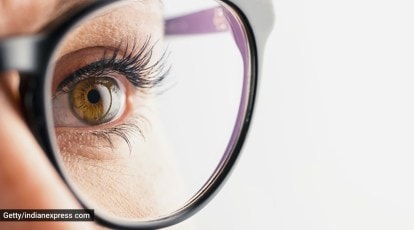Professional Neurologist Andalusia: Comprehensive Mind Health Services
Wiki Article
Is Refractive Surgery Right for You? Elements to Consider for Better Eyecare
In the realm of eye care, the decision to undergo refractive surgical treatment is a weighty one that demands thoughtful factor to consider. As individuals seek clarity and flexibility from the restraints of corrective lenses, countless aspects come right into play when determining the suitability of such a procedure. From the complexities of one's eye wellness to the complexities of personal assumptions and daily habits, each aspect holds value in the more comprehensive landscape of refractive surgical procedure candidacy. By examining these vital components with treatment and precision, a clearer path towards notified decision-making emerges.Eye Health Examination
When thinking about refractive surgical procedure, an extensive eye wellness evaluation is important to evaluate the suitability of the procedure for each and every person. neurologist andalusia. This evaluation includes a series of exams and examinations carried out by an eye treatment specialist to identify the general health and wellness of the eyes, the existence of any kind of hidden problems, and the security of the refractive mistakeDuring the assessment, different aspects are considered, such as the individual's clinical history, existing eye prescription, corneal density, pupil size, and tear movie quality. These analyses help to recognize any contraindications to refractive surgery, such as corneal irregularities, cataracts, or untreated eye infections. In addition, the analysis assists to take care of patient expectations regarding the possible outcomes of the surgical procedure based upon their one-of-a-kind eye qualities.
Ultimately, the eye health and wellness evaluation is essential in making certain the safety and security and effectiveness of refractive surgical treatment, as it provides valuable understandings into the individual's eye health condition and helps determine the most ideal treatment alternatives for attaining optimal visual outcomes. (neurologist andalusia)
Way Of Life Evaluation
A comprehensive way of life assessment is important in determining the suitability of refractive surgery for an individual's aesthetic adjustment requirements. Way of life variables such as line of work, leisure activities, and day-to-day tasks play a crucial role in the decision-making process relating to refractive surgical procedure.Additionally, lifestyle behaviors such as sports involvement, outdoor tasks, or even skin care regimens can affect the healing procedure and overall success of refractive surgical procedure. By performing a comprehensive lifestyle evaluation, eye care specialists can customize their recommendations and therapy strategies to fulfill the distinct needs of each person, ultimately leading to improved aesthetic end results and fulfillment.
Assumption Positioning

Clients need to comprehend that while many individuals attain 20/20 vision or better adhering to refractive surgical treatment, some may still call for glasses for certain activities like analysis or driving at night. Handling these expectations aids prevent frustration and frustration post-surgery, leading to an extra positive total experience for the patient.
Threat Analysis

Elements that might increase the danger of issues include age, particular medical problems like autoimmune conditions, unstable vision prescription, slim corneas, and impractical patient assumptions. In addition, selecting a knowledgeable and experienced surgeon, complying with pre and post-operative care directions diligently, and revealing any pertinent case history can aid reduce threats.
To reduce the possibility of difficulties, ophthalmologists conduct thorough pre-operative examinations to identify any kind of contraindications to surgical treatment. They also review the prospective risks and advantages with individuals throughout the appointment process. By taking part in open interaction and shared decision-making, both the ophthalmologist and the patient can collaborate to determine if refractive surgical procedure is the appropriate choice based on individual danger accounts and desired outcomes.
Appointment Importance
Thinking about the critical function of notified decision-making in examining risks and potential issues in refractive surgery, the assessment procedure holds considerable importance in guiding clients towards optimal end results. During the consultation, the ophthalmologist evaluates the patient's eye health, refractive mistakes, and general viability for surgical treatment. This first evaluation is vital in identifying one of the most appropriate procedure for every person, taking into consideration factors such as corneal density, pupil dimension, and existing eye problems.In addition, the appointment acts as an opportunity for clients to review their expectations, problems, and any kind of questions eye doctors in andalusia they might have pertaining to the surgical procedure. Clear interaction between the specialist and the patient is vital to make sure sensible assumptions and an extensive understanding of the possible threats and advantages entailed.
Additionally, the appointment permits the surgeon to clarify the different medical choices offered, their respective end results, and the post-operative treatment called for. This thorough conversation empowers clients to make educated decisions about their eye care, resulting in far better complete satisfaction and end results post-surgery.
Conclusion
Finally, individuals thinking about refractive surgical treatment should undergo a detailed eye health and wellness evaluation, assess their way of life behaviors, align their expectations with potential results, assess the associated threats, and focus on assessments with eye care professionals. These factors play a critical duty in identifying the suitability of refractive surgical treatment for each individual, guaranteeing optimum end results and contentment with the treatment.Individuals thinking about refractive surgical procedure typically have high assumptions pertaining to the outcomes, anticipating perfect vision without the requirement for glasses or call lenses. While refractive surgical procedure can considerably enhance vision and reduce dependence on aesthetic aids, it is essential for patients to recognize that results may differ based on private variables such as the level of refractive mistake, corneal thickness, and total eye health.
By involving in open interaction and shared decision-making, both the eye doctor and the person can function together to figure out if refractive surgical procedure is the ideal selection based on specific danger profiles and wanted outcomes.
Taking into consideration the essential function of notified decision-making in evaluating dangers and possible problems in refractive surgical treatment, the examination procedure holds considerable relevance in assisting individuals in the direction of ideal results. Throughout the assessment, the eye doctor evaluates the client's eye wellness, refractive mistakes, and overall viability for surgery.
Report this wiki page